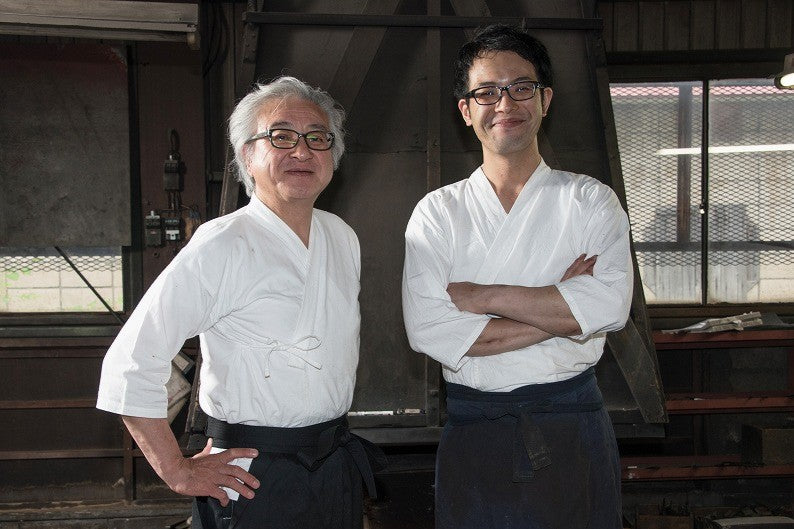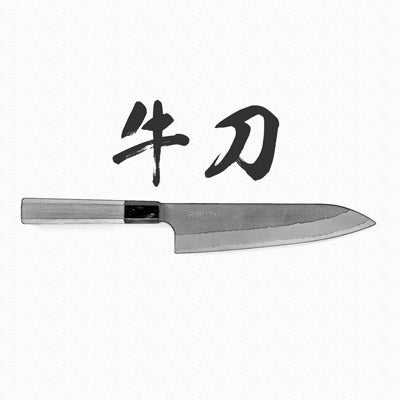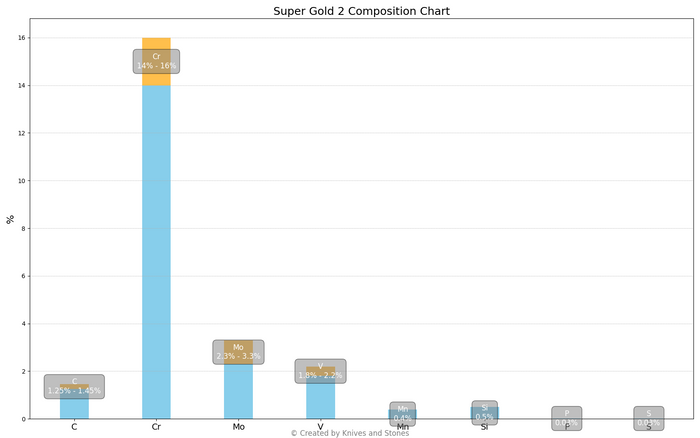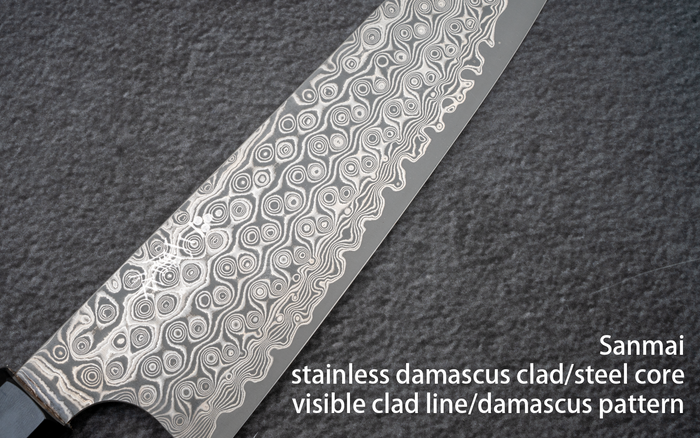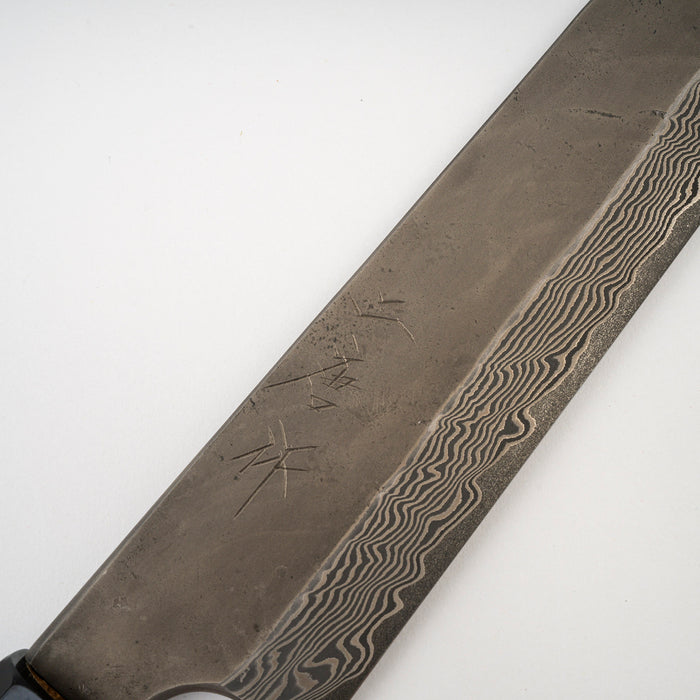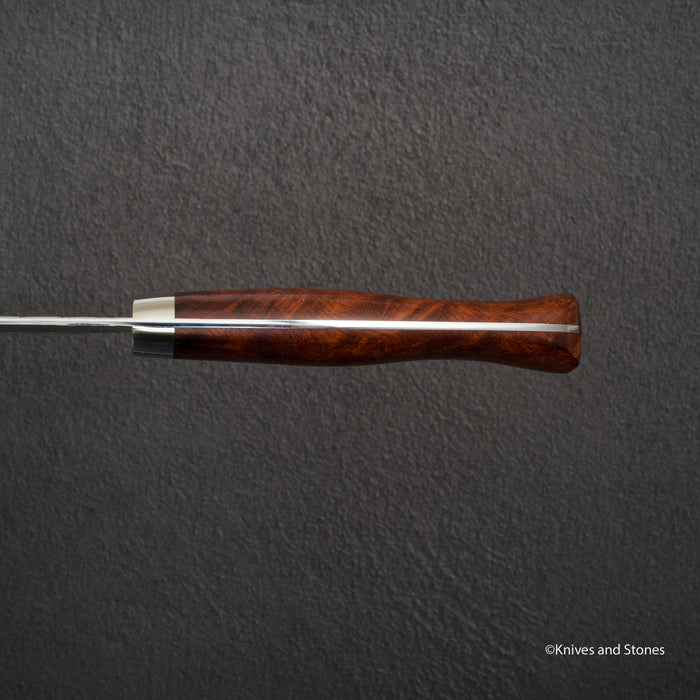Nigara | SKU:
NG-ANSG2-KGY210G10SP1
Nigara Anmon (暗紋) SG2 Raindrop Damascus K-tip Gyuto 210mm G10 Western Handle SP1
$713.00
Unit price
/
Unavailable
Nigara Anmon (暗紋) SG2 Raindrop Damascus K-tip Gyuto 210mm G10 Western Handle SP1 is backordered and will ship as soon as it is back in stock.
Couldn't load pickup availability
Detailed Specifications
| Line | Nigara Anmon SG2 |
| Profile | Gyuto / Chefs Knife |
| Bevel Type | Double Bevel |
| Weight | 269 g 9.49 oz |
| Edge Length | 196 mm .7.72 inch |
| Heel Height | 50 mm .1.97 inch |
| Width @ Spine | 2.2 mm 0.09 inch |
| Width @ Mid | 2.1 mm 0.08 inch |
| Width @ 1cm from Tip | 0.7 mm 0.03 inch |
| Steel | SG2 / R2 | Powdered Stainless |
| Blade Construction | Sanmai - Stainless Damascus Clad |
| Hardness (HRC) | 62 - 64 |
| Surface Finish | Etched |
| Handle | Coke-bottle Shaped Western |
| Region | Aomori |
| Best for |
|

| Pros | Cons |
|
|
|
Care Instruction
- Don't cut hard things! Japanese knives are brittle so bone hacking is a NO NO!
- Wash with neutral detergent after use, and wipe dry;
- Please don't wash knife with dishwasher, it will damage the wood handle;
- Be careful not to leave the knife close to a heat source for a long time;
- It is a lot more dangerous to cut with a blunt knife than a sharp knife!
- It is best to sharpen a Japanese knife regularly on a waterstone.



















